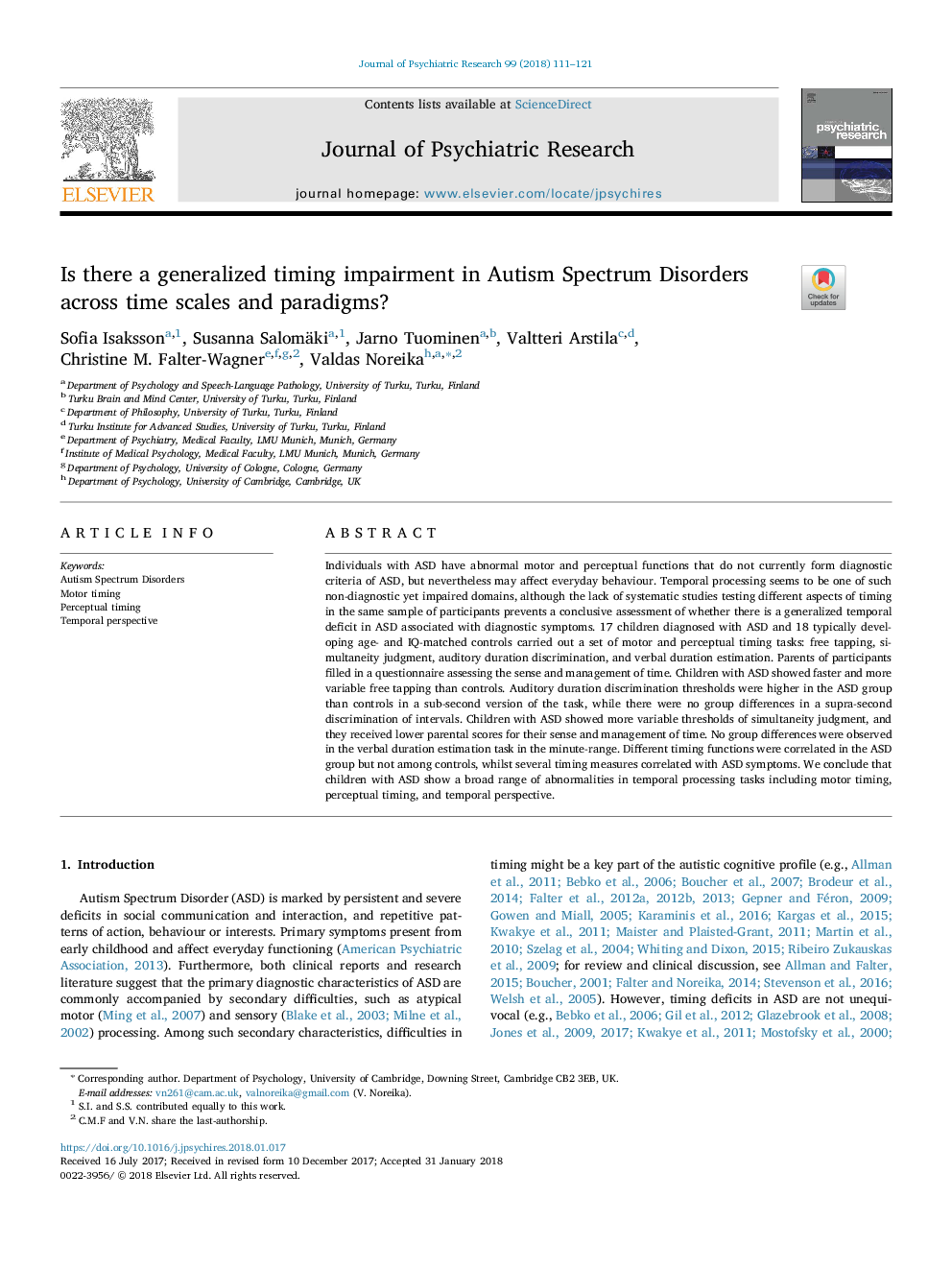ترجمه فارسی عنوان مقاله
آیا اختلالات زمان بندی عمومی در اختلالات اسپکتروم اوتیسم در مقیاس و پارادایم های زمانی وجود دارد؟
عنوان انگلیسی
Is there a generalized timing impairment in Autism Spectrum Disorders across time scales and paradigms?
| کد مقاله | سال انتشار | تعداد صفحات مقاله انگلیسی |
|---|---|---|
| 119179 | 2018 | 11 صفحه PDF |
منبع

Publisher : Elsevier - Science Direct (الزویر - ساینس دایرکت)
Journal : Journal of Psychiatric Research, Volume 99, April 2018, Pages 111-121
ترجمه کلمات کلیدی
اختلالات طیف اوتیسم، زمان بندی موتور، زمان ادراک دیدگاه موقتی،
کلمات کلیدی انگلیسی
Autism Spectrum Disorders; Motor timing; Perceptual timing; Temporal perspective;

